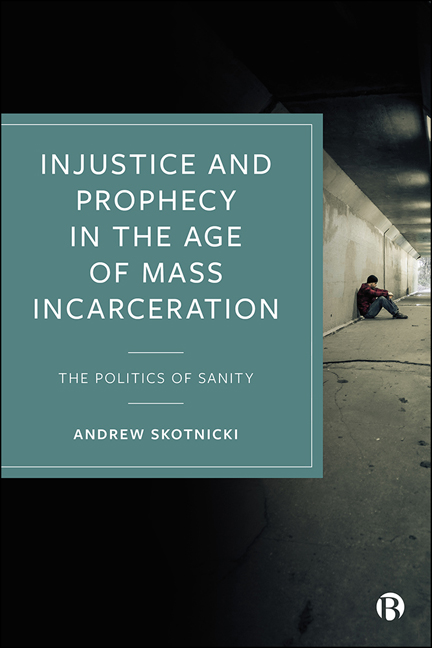1 - Overview of the Problem of Mental Illness and Incarceration
Published online by Cambridge University Press: 12 October 2022
Summary
We begin our investigation with sociological and historical data that underscore the evolution of mental illness from a local and, for the most part, equivocal reaction to human eccentricity, one never far from holy fear, if not cautious respect, to the current pervasiveness of faulting and punishing many people who, putatively, have no control over the condition that does so much to define them. We will look at the numbers to get a statistical appreciation of the depth of the problem, trace the evolution of the way the phenomenon has been addressed historically, and detail the authoritative rise of medical diagnoses as fully determinative of the psychopathic condition and the shrunken alternatives, save incarceration, available for those so diagnosed. In complementary fashion, we will also discuss the growing dissatisfaction within the psychiatric community with a, largely, Freudian and Jungian emphasis on the integrity of the unconscious and the methods there prescribed to appreciate and illumine the determinative power of inner forces, as distinct from the current emphasis on strictly biological explanations for uncanny and unacceptable behavior.
Statistical data
If anything, a pragmatic, writ positivist, public ideology, especially in an age of dwindling social services and increased revenue opportunities for the corporate and financial sectors, would easily surmise that it is far more cost-effective to treat a person designated as psychotic in an out-patient or in-patient treatment context, or in a therapeutically centered mental health court, than foot the bill for an often-lengthy stay in a penal institution.
The 2018– 19 annual report of HM Prison & Probation Service revealed a cost of L41,136 per prisoner in the UK. In America, the Vera Institute of Justice discloses that in a 40-state survey, representing more than 1.2 million confined persons, the annual individual cost averaged $31,286 and ranged from $14,603 in Kentucky to $60,076 in New York. The latter number is particularly noteworthy since the three largest concentrations of the “mentally ill” in the US are not in health-care facilities but penal institutions; all of which are located in large urban centers with a comparatively high cost of living: the Los Angeles County Jail, the Cook County Jail in Chicago, and the Rikers Island jail complex in New York City.
- Type
- Chapter
- Information
- Injustice and Prophecy in the Age of Mass IncarcerationThe Politics of Sanity, pp. 11 - 43Publisher: Bristol University PressPrint publication year: 2022



